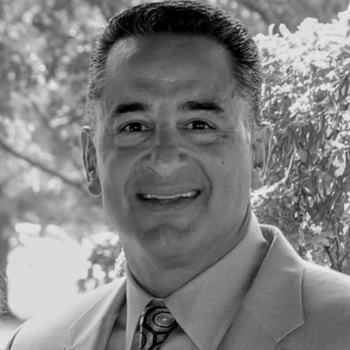OPINION: Campus unrest over Hamas attacks on Israel offers students tough lessons on free speech in higher education
Many students are coming to the vivid realization that their speech, although free, may carry with it consequences they never contemplated.
Ken Tashjy served as General Counsel for the Massachusetts Community College System for over 21 years and currently serves as a higher education attorney and consultant. He has taught as an adjunct instructor at Suffolk University since 2008, and previously at Brandeis University as a Guberman Teaching Fellow. He received a B.A. in Psychology from Susquehanna University, an M.Ed. in Higher Education Administration from the University of Massachusetts Amherst, and his J.D. from Suffolk University Law School.
In the aftermath of the terrorist attacks by Hamas on Israel, there has been much attention focused on America’s colleges and universities and the profoundly conflicting views expressed by students over the origins of the ongoing conflict in the Middle East and the justification for Israel’s declaration of war and strong military action in respond to the attacks.
Following a call for a ”Global Day of Jihad” by a former Hamas leader, and a “Day of Resistance” by the National Students for Justice in Palestine, protests erupted on campuses with many students not only expressing support for Palestinians, but also endorsing the deadly Hamas attacks.
Other students stood with Israel, denouncing the murder by Hamas of more than 1,200 innocent people and the rape and kidnapping of dozens more, including many Americans.
In the wake of these campus protests, renewed attention has been focused on the right of free speech in higher education, the right to protest, and the authority and responsibility of campus leaders to limit or prohibit certain speech.
Many students are coming to the vivid realization that their speech, although free, may carry with it consequences they never contemplated. For other students, these events have crystalized the glaring disconnect that exists between their views and the views of institutional leaders and faculty.
In either case, students are learning some tough lessons about free speech in higher education.
Lesson one: Students have no First Amendment protections for illegal conduct.
The First Amendment protects students to express their views, regardless of whether society applauds or is appalled. As the marketplace of ideas, higher education must remain a forum for discussion and debate, no matter how difficult some of those conversations might be.
However, there are limits; student speech that rises to the level of actual harassment, threats or intimidation finds no cover under the First Amendment and should be subject to swift disciplinary action by college administrators.
Such conduct has been seen at the University of Massachusetts Amherst, where a journalist was harassed by pro-Palestinian students who demanded to know her ethnicity and telephone number, at Florida Atlantic University where a student was arrested on a felony battery charge after she reportedly elbowed a pro-Israeli woman, and at UCLA where pro-Palestinian students were threatened and had their laptops destroyed while watching a webinar titled, “The Crisis in Palestine.”
[RELATED: THE SCROLL: Pro-Hamas students corner, harass Jewish reporter Kassy Dillon]
Lesson two: While a person may have a right to free speech and expression, they have no right not to be criticized, ridiculed, or held to account for their opinions.
This lesson is being learned all too well at Harvard University, where after 34 student organizations signed a letter condemning Israel following the Hamas attacks, a number of potential employers have committed to not hire any students who are members of these organizations.
Yes, while speech at Harvard may be free, it is not free of consequences.
Lesson three: Those who support Israel and have witnessed the anti-Israel protests on their campuses should expect no support or assistance from their institution’s so-called Bias Response Teams.
While these teams are allegedly concerned with eradicating bias and hate on campus, it apparently has to be the right bias or hate to elicit a response.
Does anyone question that if the anti-Israel protesters were holding signs that read “Support Merit-Based Admissions,” “There Are Only Two Sexes.” “Save Women Sports For Real Women,” “No In-State Tuition For Illegal Aliens,” or “Keep Your Hands Off My Gun,” they would have been immediately hauled before their institution’s Biased Response Team to acknowledge their verbal infractions and repent for the hate or bias they caused?
[RELATED: ANALYSIS: Harvard president Claudine Gay is a hypocritical fraud]
While I am an absolutist when it comes to free speech on campus, and believe there is no place for Bias Response Teams in higher education, if institutions are going to characterize the mere misgendering of someone as potential hate or bias, shouldn’t calling for the annihilation of an entire people warrant similar consideration and condemnation?
Instead, what do we hear from most campus officials who claim bias and hate have no place on their campuses? Crickets.
Tough lessons, indeed.
Editorials and op-eds reflect the opinion of the authors and not necessarily that of Campus Reform or the Leadership Institute.

